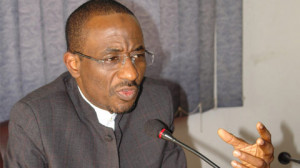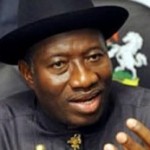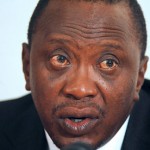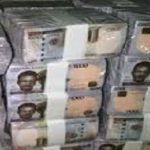A Voice From The Diaspora: Sanusi, The Reign Of The Unsure Banker
Articles/Opinion Sunday, February 16th, 2014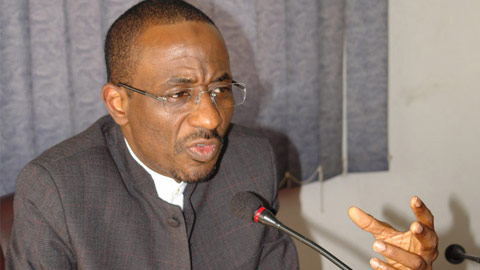
Dr. Audu Obanta
Mallam Sanusi Lamido Sanusi, would go down in history as the most controversial Governor of the Central Bank of Nigeria (CBN). From his actions and words these past five years since his appointment as the boss of the apex bank, he comes as someone who revels in controversy. No doubt his love for activism could be responsible for this.
There is really nothing wrong in one being controversial, especially if he is sure about his facts on any issue he wishes to engage in. But this appears not to be the case with Sanusi. He would go down as one banker whose figures the public cannot bank on.
Long before the brewing $49.8billion cum $10.8 billion/$12.8 billion and later $20billion unremitted revenue somersaults, the Kano Prince had earned a reputation in voodoo presentation of figures and avoidable flip-flops.
Sanusi began his journey of manipulating Nigerians with controversial figures in 2012 with his allegation that the National Assembly gulps 25% of the national budget. He had told Nigerians during a convocation lecture at the Igbinedion University, Okada, Edo State, that the huge cost of running the government was inimical to national development and went ahead to cite the example of the National Assembly which, he claimed, gulped a whopping 25% on the national budget in 2010.
Both the House of Representatives and the Senate naturally took umbrage at Sanusi’s statistics describing it as a ploy to incite the Nigerian public against the legislative arm of government. When he was called by the Senate to explain his figures and where he got them, he said he stood by his figures which he claimed were sourced from the Budget Office. Upon further interrogation on how the National Assembly budget of N136.25bn for the year translated to 25% of the N3.9 trillion national budget, he recanted explaining that what he meant was that the National Assembly budget was 25% of total Federal Government overheads and that he was misquoted by journalists.
At the end of the inquiry, it became clear that the figures Sanusi relied on for his allegation that the National Assembly gulped 25% of Federal overheads were not entirely correct as they did not take into consideration service wide votes. The then Minister of Finance, Mr. Olusegun Aganga, summarized the issue thus: “The document which Sanusi relied on did not consider service wide votes in the course of computation. Besides, his submission could not be totally written off as misleading, although it might not be as accurate as it should be.”
Having been proved wrong, Sanusi resorted to blackmail. Instead of apologizing for his gaffe, he resorted to threatening the Senate with resignation, saying that he was willing to tender his resignation as CBN Governor and that he was not born with the office. The Senators let him off the hook having established the fact that the CBN boss’ figures were not completely correct as stated by Aganga.
Left off the hook without any sanction by the National Assembly, Sanusi was emboldened to rev up his ride with controversial figures with an allegation of unremitted $49.8bn oil revenue against the Nigerian National Petroleum Corporation (NNPC) in September 2013. In a letter to the President, Sanusi alleged that by the records available to him indicates that a whopping $49.8bn of revenue from oil sales between July 2012 and June 2013 was missing. How a banker and the chief economist of the nation could think and believe that such a huge amount of money could just disappear and the country would not be in a huge financial and economic mess beats the imagination!
But Nigerians believed him. The reasoning was that as CBN governor, he should know. When the inter-agency team charged with the responsibility of reconciling the figures to verify the truth behind Sanusi’s allegation came up with its interim report indicating that $39bn was actually remitted into the Federation Account as against Sanusi’s $49.8bn, it became clear that the trust Nigerians placed on him as someone who should know was actually misplaced. The CBN boss actually knew no better! He later confessed that the crude oil export documents he relied on for his allegation did not indicate that NNPC lifted some of the crude oil on behalf of other government agencies; a point NNPC alluded to when it explained that the CBN boss’s allegation was borne out of his ignorance of the workings of the oil and gas industry.
Barely two hours after the joint press conference where the Coordinating Minister of the Economy and Minister of Finance, Dr. Ngozi Okonjo-Iweala; Minister of Petroleum Resources, Mrs. Diezani Alison-Madueke; and the CBN Governor all told the world that $39bn of the original $49.8bn alleged to be missing by Sanusi have been reconciled with the $10.8bn outstanding yet-to-be reconciled, Sanusi told the Senate Committee on Finance that what was outstanding was $12bn and not $10.8bn. Dr. Okonjo-Iweala had to cut in to correct him that the outstanding amount was $10.8bn. The question that arises from this and which most Nigerians have refused to ask is: Where did Sanusi get the extra $1.2bn he added to the $10.8bn yet-to-be-reconciled revenue to arrive at the $12bn he came up with at the Senate Committee hearing barely two hours after agreeing that what was outstanding was $10.8bn?
Again, Sanusi was left unsanctioned for misleading the public and heating up the polity unnecessarily with his false figures. His supporters argued that the yet-to-be-reconciled $10.8bn (which they chose to brand as “missing”) was enough justification for the false alarm the CBN boss raised. Then NNPC came up with the explanation that the $10.8bn was not missing but was used for some of the critical operations it carried out as part of its statutory duties. It also provided legal backing for the expenditure (Section 7 Sub-section A and B of the NNPC Act which provides that the corporation can engage in such expenses and deduct same from proceeds of crude oil sales). This effectively robbed Sanusi of the victory or justification he thought the so-called “missing” $10.8bn gave him.
Sanusi’s fresh allegation of $20bn unremitted oil revenue against NNPC could therefore be seen as a gambit to redeem his image which has been thoroughly pulverized by his misguided adventure with false figures. For the fresh figure of $20bn unremitted oil revenue he has pushed into the public space, he has come up with series of documents to support his case just as he did in the previous two occasions. He appeared to have forgotten the vital lesson from his previous misadventures that figures could seem infallible when seen from a particular perspective that does not embrace the whole picture.
The last hearing of the Senate Committee on Finance led by Senator Makarfi where the inter-agency committee chaired by Dr. Okonjo-Iweala presented its final report proved to be very instructive. Relying on the certification given by the Petroleum Products Pricing Regulatory Agency (PPPRA) which is statutorily empowered to verify petroleum products imports, the inter-agency team agreed that the outstanding $10.8bn has been accounted for by NNPC. Sanusi himself agreed that since the PPPRA has signed off on the NNPC figures, he has no problem agreeing with the figures. The new issue the inter-agency team came up with was that they lacked the expertise to thoroughly assess the evidence supplied by NNPC for its claims, so it called for an independent forensic audit to look at the books of the various agencies involved in the collection oil revenues with a view to coming up with an authentic report to clear the air once and for all.
While Okonjo-Iweala owned up to the fact that the inter-agency team lacked the technical expertise to scrutinize the evidence supplied by NNPC, Sanusi on his part stated that neither he nor the CBN has the technical expertise to determine how much crude oil the Nigerian Petroleum Development Company (NPDC) produced and what part of it should accrue to the Federation Account. But in another breadth, he said he stood by his $20bn unremitted oil revenue figure. The question that arises from all these is: How did he arrive at the fresh figure of $20bn unremitted oil revenue when he has acknowledged lack of expertise in the rudiments of the business from which the revenue in question flows?
The two points that have emerged from the Senator Ahmed Makarfi-led committee hearing are: 1.) that further expert opinion by way of forensic audit is required to scrutinize the documentary evidence provided by NNPC for the shortfall of $10.8bn revenue into the Federation Account; 2.) that further expert opinion is required by way of legal interpretation by the Attorney General of the Federation on the legality of the Strategic Alliance Agreement between NPDC and Atlantic Energy and Seven Energy and the revenue that accrues to the two companies on the one hand, and how much of the revenue that accrue to NPDC should be swept into the Federation Account. Clearly, these are outside the range of what Sanusi can speak on or determine with any certainty. It is therefore wrong to take Sanusi’s figures in this matter as the gospel truth and on the strength of that pillory NNPC as a section of the media and civil society are currently doing. Besides, there is nothing in Sanusi’s track record with figures that commends him for such support.
Going by his antecedents with figures, it would be remiss for Nigerians to bank on Sanusi’s fresh figures. He has taken Nigerians down this futile road before, it would be foolhardy for anyone to take this figures as the gospel truth. It is wiser to wait for the reports of the forensic auditors and the Attorney General as recommended by the Senate Committee on Finance than to allow the nation be taken on a ride by an unsure banker whose figures cannot be banked on.
Dr. Audu Obanta is a US based Nigerian lawyer Edgeware Court, Bowie City, Maryland USA auduobanta@aol.com
Related Posts
Short URL: https://www.africanexaminer.com/?p=8365


